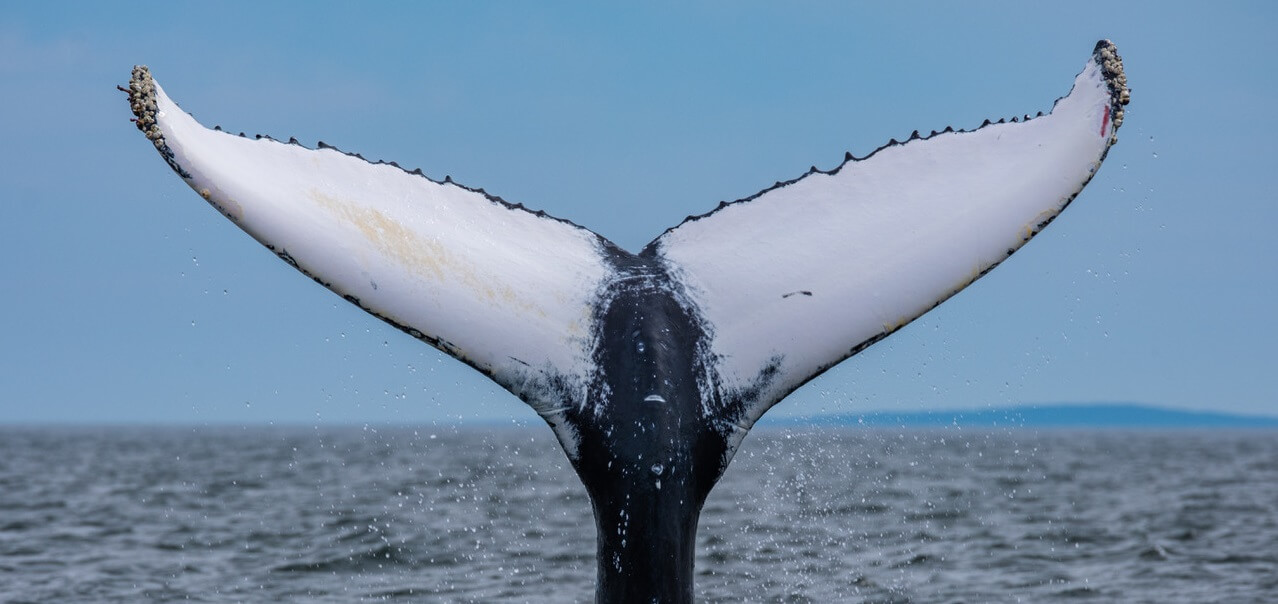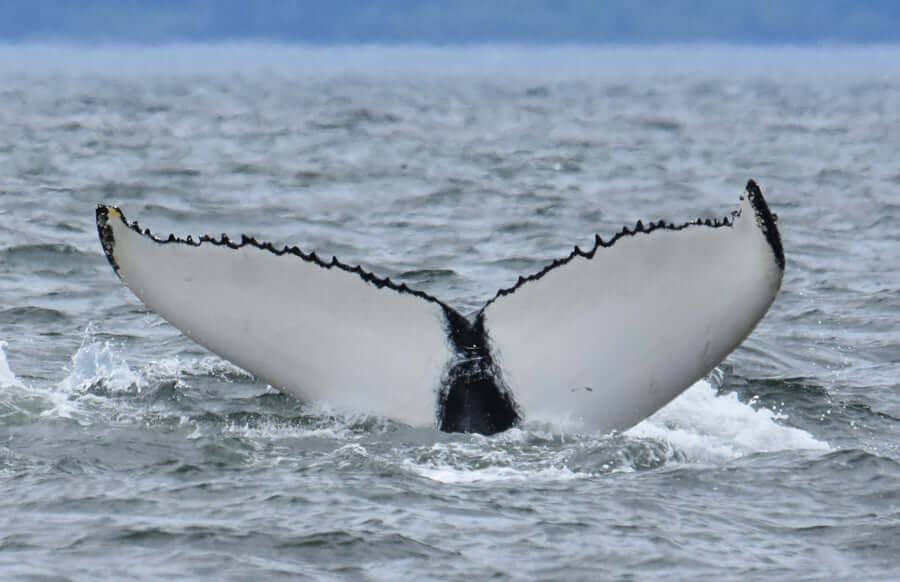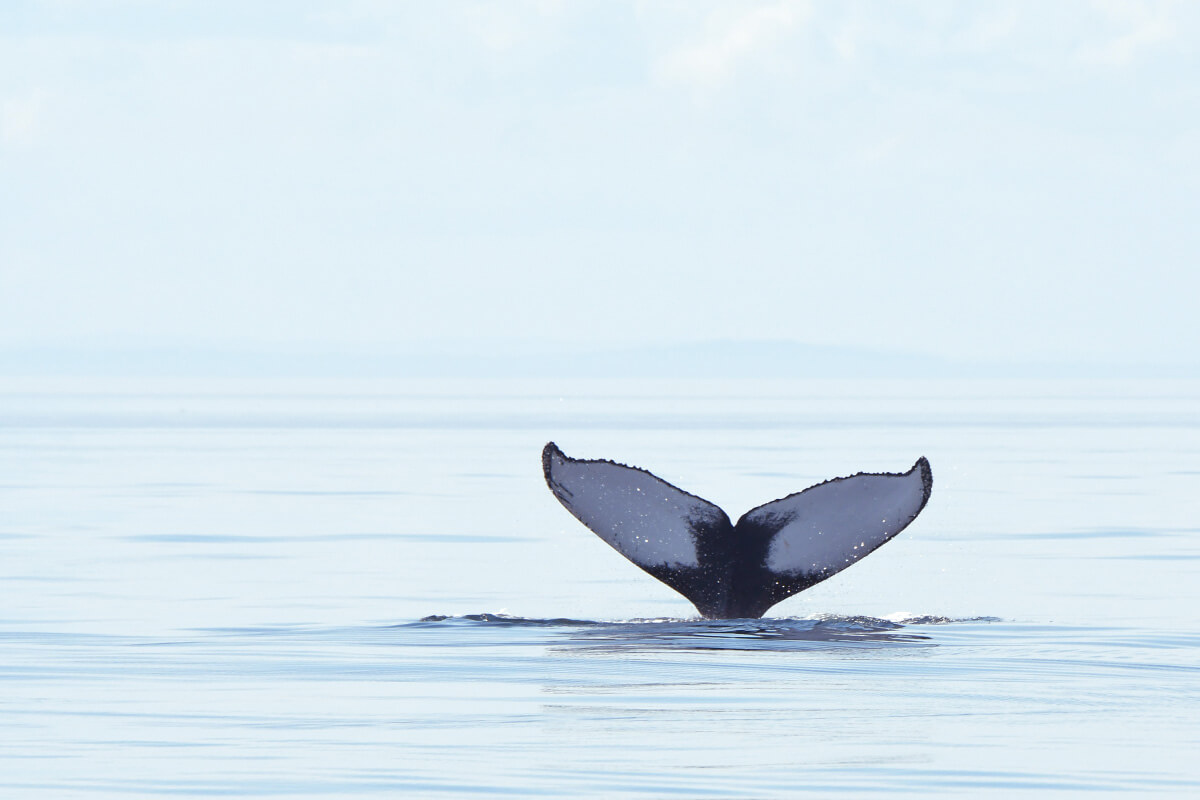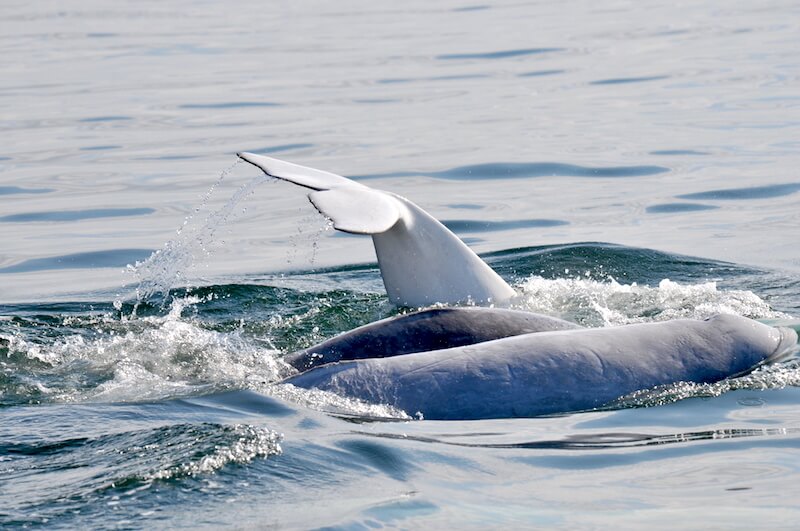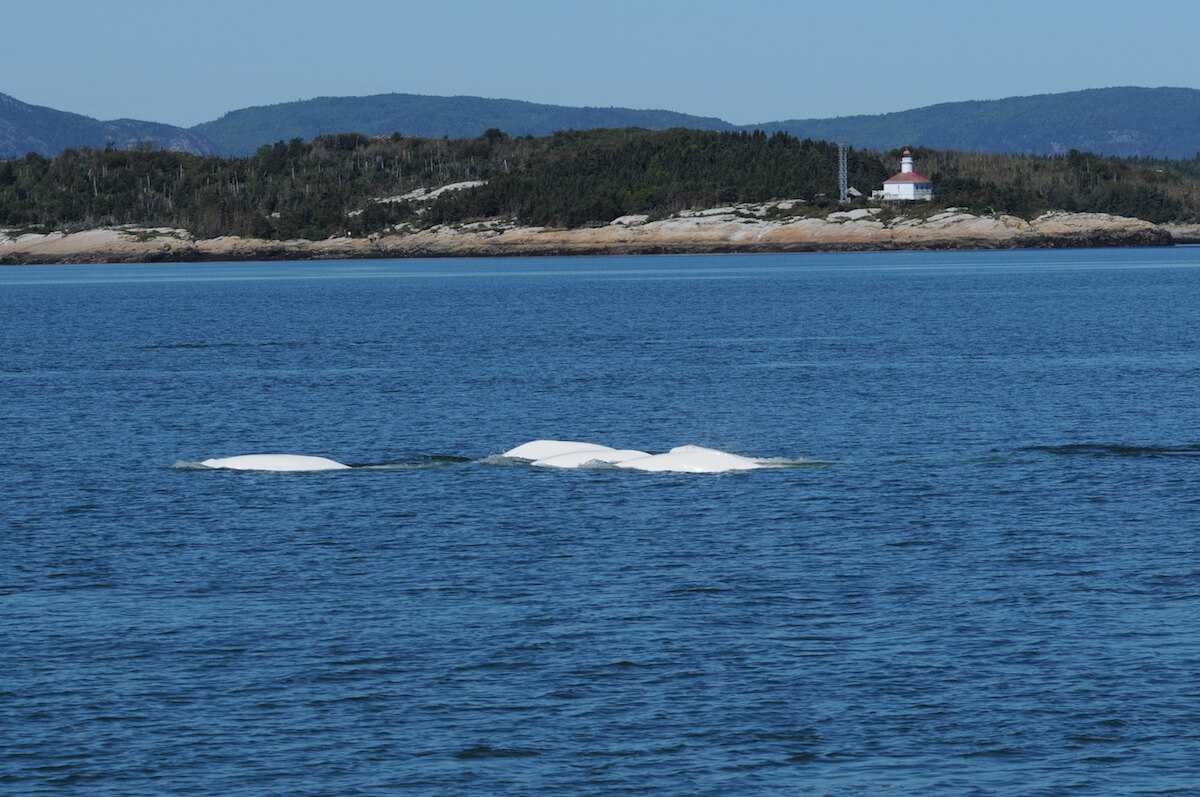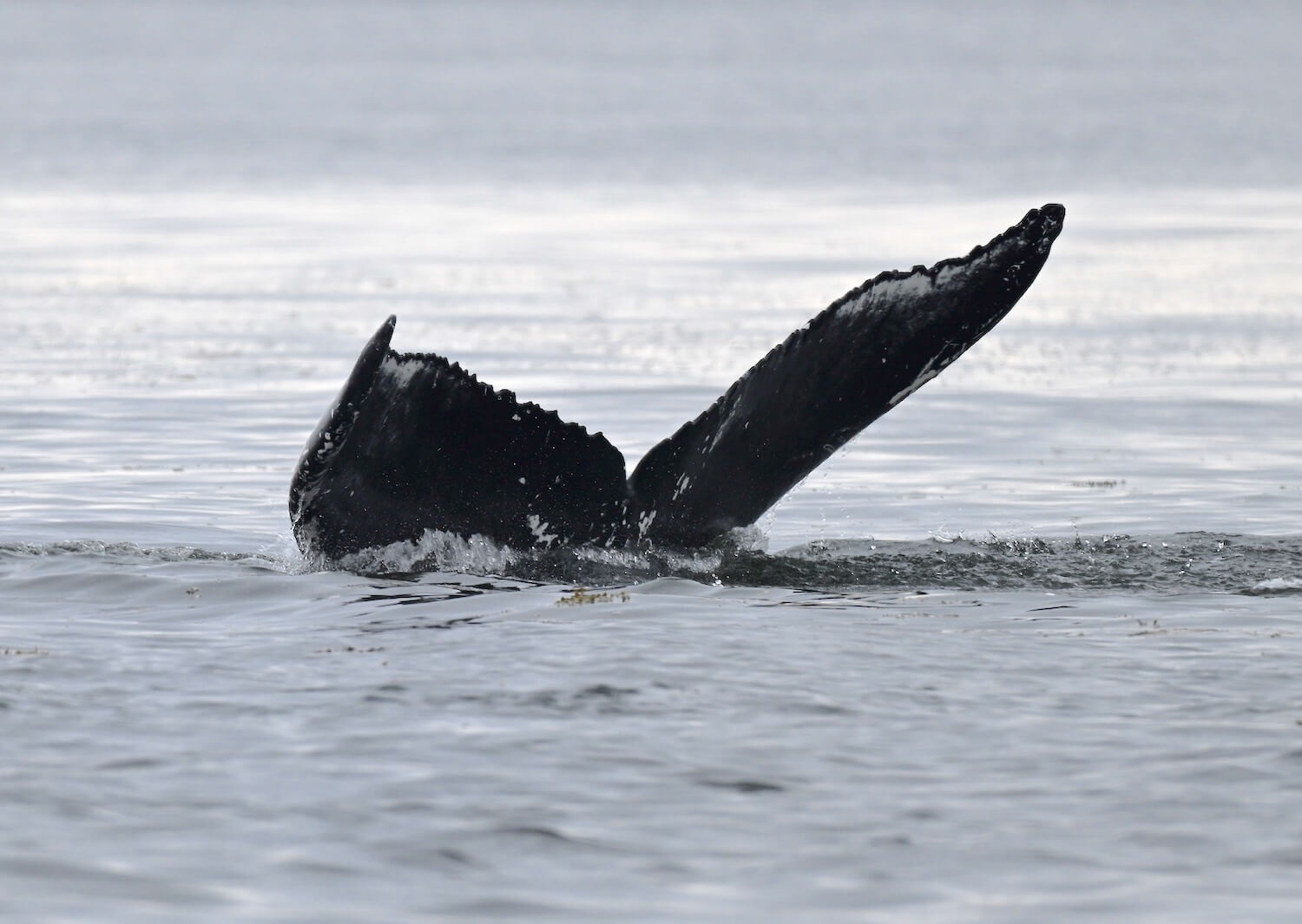We know where H858, also known as Queen, and H879 spent their holidays! No, these two humpbacks did not send us postcards, but the unique colour patterns of their tails were enough for whale enthusiasts to recognize them!
They were photographed off the Dominican Republic on February 28. Their identification was made possible by the collaboration of local whale research groups. In fact, the matches were made by comparing photographs taken last fall by Renaud Pintiaux in Les Escoumins and those taken by Kim Beddall of Whale Samana this past winter. This is not the first time that humpbacks known to frequent the St. Lawrence have been spotted in the Caribbean. Last year, this was the case H689 a.k.a. Aramis! This individual was also spotted by the Whale Samana group. Another individual, H531, often referred to by her nickname ‘La Souffleuse,’ was photographed in the Turks and Caicos Islands.
Every fall, most of the humpbacks that come to feed in the St. Lawrence leave for the Caribbean. They mate there and give birth to their calves, then return to our waters come spring. It is therefore not unusual that certain humpbacks featured in our catalogues are identified during their winter “holiday” in the South. Most of the humpbacks that frequent the St. Lawrence are thought to spend the winter in the Dominican Republic, where they breed and give birth.
But sometimes there are surprises! In 2020, the individual H930 went to Guadeloupe instead. However, humpbacks seen in Guadeloupe usually tend to favour the waters of Norway or Iceland for their summer feeding grounds. What makes H930 prefer the Saint Lawrence? Hard to say. Either way, humpbacks seem to remain loyal to their summer foraging grounds year after year, as testified by the return of H930 to the St. Lawrence in 2021.
As March draws to a close, Queen, H879 and their fellow humpbacks have probably already embarked on their return trip to Quebec. It won’t be long before we see our first arrivals!
Belugas in sight!
Belugas are already back in the Estuary! During a reconnaissance flight earlier this week, an employee of the Canadian Ice Service (Environment and Climate Change Canada) spotted some white dots moving between the chunks of ice in the St. Lawrence. Thanks to her bird’s eye view, the technician was able to tally 12 individuals in a group swimming between Cap-à-l’Aigle and Cap-au-Saumon. Later, two separate groups of five belugas each caught her eye, one in the Rimouski sector, the other near Mont-Joli. In Les Bergeronnes, GREMM Director Robert Michaud also observed a small group of these ‘sea canaries’ from shore.
Seals on the floes
Pinnipeds were also present this week! In the Gaspé Peninsula, one observer has been seeing harbour seals daily, swimming and resting both in Gaspé Bay and off Cap-des-Rosiers. The same goes for captains in Les Escoumins, who have been regularly observing pinnipeds sticking their little black heads out of the water, not far from the pilot station. “We saw seals almost every day this week!” they exclaim. At L’Anse-de-Roche, a seal was also seen lounging on the ice in the Fjord.
Farther downstream in Gallix, harp seals were drawing attention this week. Mariner Jacques Gélineau went out with a drone to observe a few of these animals basking in the sun on scattered sheets of ice. However, they are not particularly numerous. “Ten, twenty years ago, we used to seem them by the hundreds this time of the year. But we haven’t seen anything like that for a few years now,” he adds.
Have you seen a seal or a whale?
Share your observations and photos by writing to us at [email protected] or on our Facebook page.


